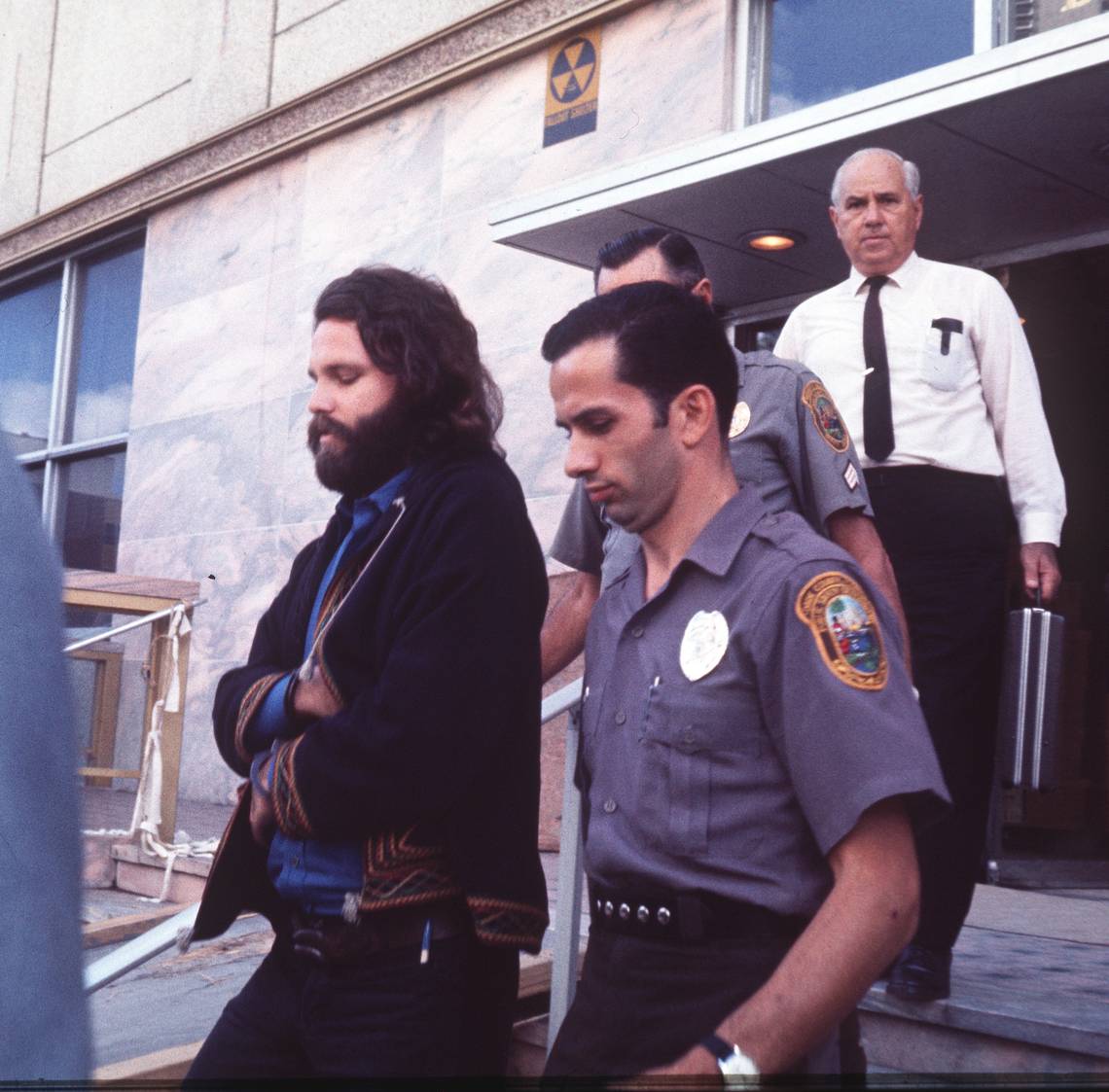 MIAMI, March 1, 1969 — A rock concert by The Doors took a dramatic and controversial turn last night, leading to the arrest of the band’s lead singer, Jim Morrison, on charges of lewd and lascivious behavior.
MIAMI, March 1, 1969 — A rock concert by The Doors took a dramatic and controversial turn last night, leading to the arrest of the band’s lead singer, Jim Morrison, on charges of lewd and lascivious behavior.
The incident, which unfolded at the Dinner Key Auditorium in Coconut Grove, Miami, has shocked the music world and sparked a national debate about censorship, freedom of expression, and the excesses of rock culture.
The concert, which had been eagerly anticipated by fans, quickly descended into chaos as Morrison, known for his provocative and unpredictable stage presence, began taunting the audience with explicit language and behavior. Witnesses say that Morrison appeared to be intoxicated and was visibly agitated as he performed. The tension escalated when Morrison reportedly exposed himself to the audience, a move that stunned the crowd and led to an immediate uproar.
As the performance spiraled out of control, Morrison’s behavior became more erratic. He verbally attacked the audience, challenging them and accusing them of being “slaves” to societal norms. At one point, Morrison encouraged the crowd to join him in an “orgy” of rebellion, further fueling the chaotic atmosphere in the auditorium. The situation reached a boiling point when members of the audience began to rush the stage, creating a scene of pandemonium that eventually forced the concert to come to an abrupt end.
In the aftermath of the show, local authorities moved quickly to take action against Morrison. Police issued a warrant for his arrest, citing multiple charges, including indecent exposure, open profanity, and incitement to riot. Morrison, who had already left Miami by the time the warrant was issued, was eventually arrested days later in Los Angeles.
The incident has ignited a firestorm of controversy across the country. Conservative groups and community leaders have condemned Morrison’s actions as obscene and a threat to public morality. Miami’s city officials, embarrassed by the scandal, have vowed to crack down on similar behavior in the future, with some calling for a ban on rock concerts in the city.
However, Morrison’s arrest has also sparked a fierce debate about artistic freedom and censorship. Many fans and supporters argue that Morrison’s behavior, while provocative, was a form of artistic expression that should be protected under the First Amendment. The Doors’ manager, Bill Siddons, defended Morrison, stating that the charges were exaggerated and that the concert was a reflection of the raw energy and emotion that The Doors were known for.
Morrison, for his part, remained defiant in the face of the charges. In a statement, he denied any wrongdoing, claiming that the allegations were a misunderstanding and part of a broader attempt to stifle his artistic expression. “I didn’t do anything they say I did,” Morrison told reporters. “This is just another way of trying to silence those who refuse to conform.”
The legal battle that followed the Miami incident would prove to be a defining moment in Morrison’s career. After a lengthy trial, Morrison was convicted of indecent exposure and profanity in September 1970, but he was released on bail pending an appeal. The conviction, however, took a toll on Morrison, who became increasingly disillusioned with the music industry and his role as a rock icon.
The Miami concert and its aftermath have since become a legendary episode in the history of rock and roll, symbolizing both the excesses of the era and the growing tensions between the counterculture and mainstream society. For The Doors, the incident marked the beginning of a turbulent period that would eventually lead to the band’s dissolution.
As fans and critics continue to debate the legacy of that infamous night in Miami, one thing remains clear: Jim Morrison’s arrest cemented his status as one of rock’s most controversial and enduring figures, a symbol of rebellion whose influence continues to be felt long after his untimely death in 1971.